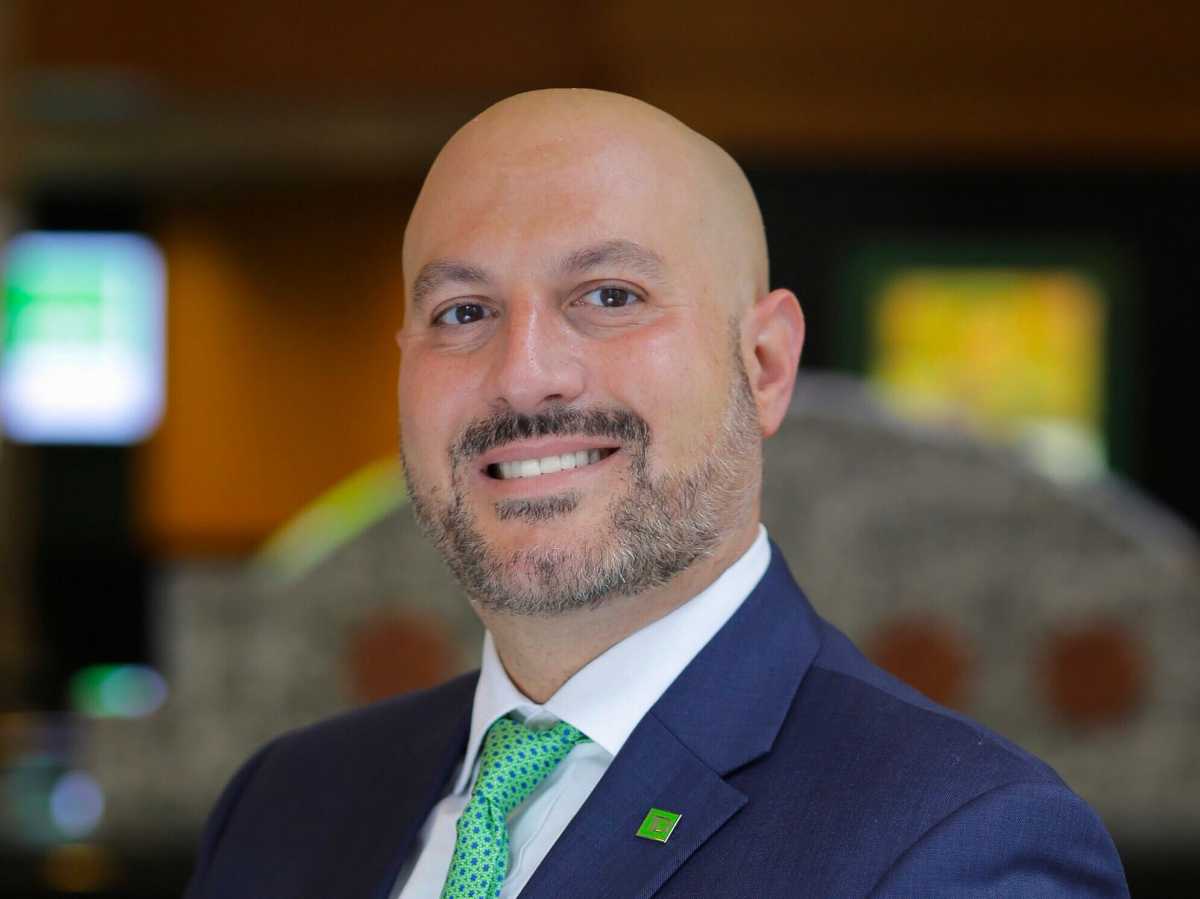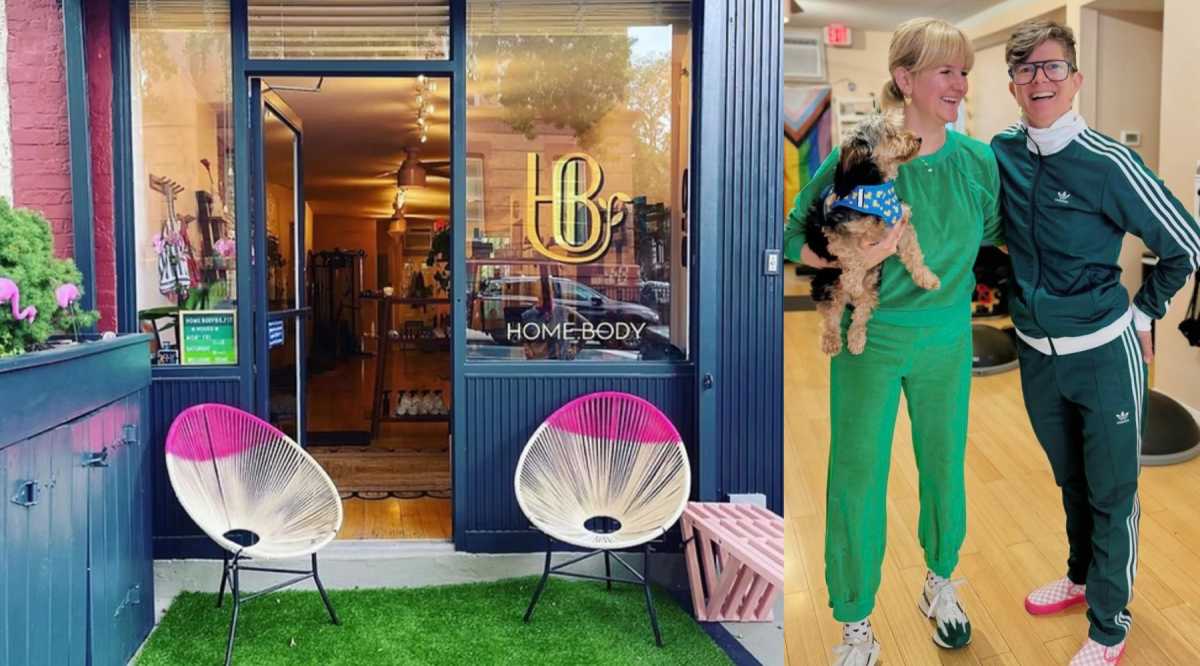As a business development vice president responsible for LGBTQ initiatives at TD Bank, Steven Garibell, through much of 2020, hustled to develop ways to assist clients and other enterprises in the community adapt to the daunting challenges and disruptions brought on by the COVID-19 crisis.
That effort involved working with both business ventures and non-profit organizations — in both contexts, first and foremost helping them to leverage the existing relationship they have to greatest advantage.
“You needed to have really good partners,” Garibell said of organizations looking to address unexpected shortfalls in revenue and funding. “Good relationships with your payroll company, your accountant, your bank. I acted more as a connector, put together training webinars with accounting firms, payroll companies, and the [New York] city Department of Small Business Services.”
TD Bank’s Steven Garibell educates small business, non-profits while pushing city to recognize LGBTQ-owned endeavors
In working with non-profits, one cardinal lesson he aims to impart is that that they have to think of themselves as businesses.
“Revenue streams may be different than from a for-profit enterprise,” Garibell said, but diversification of those revenue streams is vital.
Many non-profits providing direct services rely on government funding, but with state and local governments facing a fiscal crunch due to the enormous cost of responding to COVID, non-profits also need to look to their own fundraising prowess and to corporate and philanthropic sources of dollars.
And, in an example of how critical financial literacy is to any organization’s survival, non-profits and small businesses alike needed to be quickly schooled in how to apply for the federal government’s Payroll Protection Program and also how to seek available rent deferral opportunities.
Garibell offered such training in a variety of ways.
Partnering with Next Street, an organization that helps businesses and non-profits gain expertise in capacity building and revenue and funding enhancements, TD Bank hosted a webinar for CenterLink, a 25-year-old member coalition of more than 250 LGBTQ community centers in 45 states, the District of Columbia, Puerto Rico, Canada, Australia, and China. Though some of the organizations that joined the webinar were TD Bank clients, others were not.
The webinar focused on the participants’ revenue streams — looking at options such as galas, fundraising events including walks, runs, and bike marathons, corporate and philanthropic gifts, and government contracts. All of the participants, Garibell said, had faced significant disruptions and “they had a lot of questions.”
None, however, was yet in danger of folding, he said, and he noted the positive role that CenterLink plays in providing technical assistance to those community groups struggling. And, many, Garibell added, had already done a good job of shifting services to online platforms that gave their longstanding clients and members continued access.
Garibell also devoted significant time this past year to offering financial literacy training to staff members at non-profits, giving advice on how to move beyond pay check to pay check personal budgeting, establishing or improving their credit standing, and planning for home-buying — even at a time of financial stress.
Job fairs were another focus of Garibell’s work during 2020, whether participating in those hosted by other organizations or through TD Bank-run fairs. Despite the downturn in other industries — especially restaurants, live entertainment, and travel — the bank continued hiring throughout the year and recruiters from different lines of TD business participated.
Even in an environment where so many businesses and non-profits were struggling, Garibell noted some impressive success stories. The Stonewall Community Development Corporation — which provides housing opportunities for LGBTQ older adults even as it builds its capacity as a brick and mortar real estate development partner — was one such group he applauded. Stonewall CDC’s online platform for providing support and access to resources grew from 120 users in March as the worst phase of the COVID crisis descended on New York to more than 1200 users by September.
Garibell also continued his effort in 2020 with the National LGBT Chamber of Commerce (NGLCC) to bring an Emerging Business Entrepreneur (EBE) designation program to New York City government. Through a legislative proposal before the City Council and in brainstorming with the city’s Department of Small Business Services, TD and NGLCC hope that LGBTQ-owned businesses that have achieved certification by the Chamber can also win EBE designation from the city.
The EBE concept is similar but not identical to the longstanding Minority and Women-Owned Business Enterprise (MWBE) program. The MWBE program includes set-asides in city contracting — that typically are not made full use of, according to Garibell. The EBE designation would bring with it a variety of technical assistance opportunities for qualifying businesses and would also clearly signal to larger businesses seeking vendors that they can achieve internal diversity goals by contracting with LGBTQ-owned businesses. An important component of the Human Rights Campaign’s Corporate Equality Index is working with certified LGBTQ-owned enterprises.
Garibell, who believes it will not be long until New York establishes an EBE programs, noted that numerous municipalities across the country — including Los Angeles, San Francisco, and, closer to home, Hoboken and Jersey City — have successfully incorporated such principles into their contracting practices.
He also voiced optimism that the new Biden administration in Washington would be open to exploring an EBE approach in federal contracting.
To sign up for the Gay City News email newsletter, visit gaycitynews.com/newsletter.
































